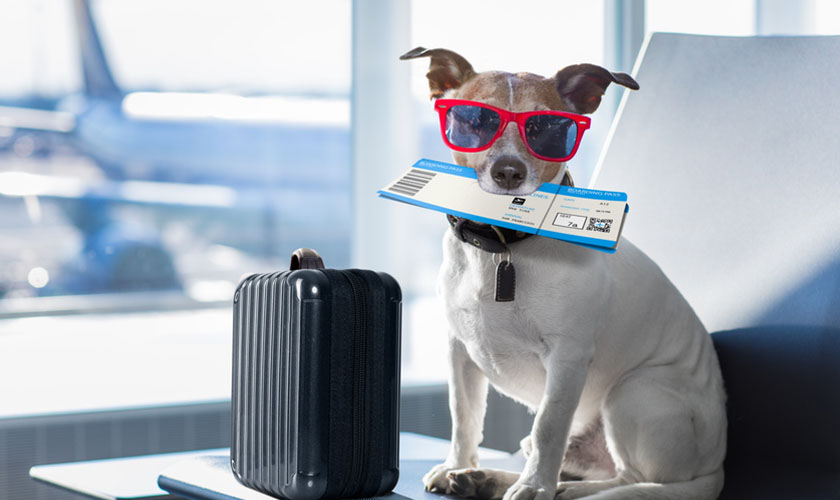Are you planning on traveling abroad with your dog? If so, your faithful companion needs to be in good health and owners need to be aware that different countries impose different regulations for animal travel.
Traveling with your dog to a European Union country
EU countries share a common, strictly enforced regulations for animal travel. Since 2012, these are:
– A pet passport – this is standardized across all member countries. The latest guidelines date from 2014 but if your pet holds an earlier one, it’s still valid. Passports contain details of the pet’s ID (chip or tattoo) and a description of the animal along with the owner’s details and signature.
– Microchip identification – microchips are implanted under an animal’s skin by a registered veterinarian. Please note: since July 3rd, 2011 tattoos are no longer a valid means of identification. However, animals identified prior to this date may still travel if the tattoo is still clearly visible.
– A rabies vaccination.
Special regulations for the United Kingdom, Ireland, Sweden and Finland
These four countries apply variations to EU legislation.
To enter the United Kingdom or Ireland, a dog must have a passport and a microchip. Since 2012, the antibody test previously required 30 days after a rabies vaccination is no longer necessary.
To travel to Sweden and Finland your pet must have a passport, an electronic microchip and have undergone oral treatment against parasites between 24 and 120 hours before departure. This treatment must be validated by a vet and recorded on the animal’s passport.
For a stay outside of the European Union
Each country outside of the European Union has its own rules for canines entering its territory. It is, therefore, advisable to check with the country’s consulate or embassy before traveling. In addition to the requirements for travel within the EU, an International Health Certificate is required.
This certificate carries a statement by a vet saying that the animal is in good health and is fit to travel. If the animal is resident in France, for example, this certificate must be obtained from a French veterinary surgeon or, if the animal is being imported into France, by a vet in its country of origin.
Conditions of carriage by air
Some airlines such as British Airways or FlyBe only allow pet animals to travel in the hold while others like EasyJet or Ryanair don’t accept pets at all. All airlines allow registered assistance dogs to travel with their owners.
If your little companion is less than three months old, check that your destination accepts puppies. In most countries, including France, puppies cannot be vaccinated against rabies until they are three months old.
Once all of these formalities are out of the way just relax and enjoy traveling with your pet. Remember, though, that to return to France an antibody test (serum titration) for rabies will need to be done before you start your journey. The presence of antibodies should be greater than O.5 IU / ml.





